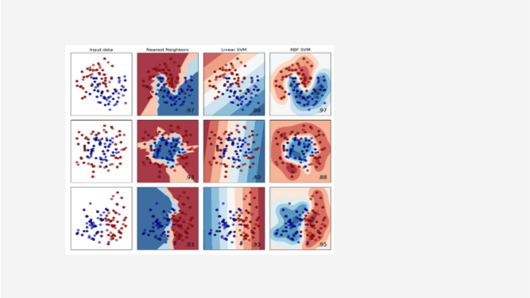Höchstleistungsrechenzentrum Stuttgart

01. Sept. 2025
Verstaltungsende10. Okt. 2025
Englisch
Basis
ThemenbereicheDaten in HPC / Deep Learning / Maschinelles Lernen
ThemenBig Data
Datenspeicherung & -management
Deep Learning
Maschinelles Lernen
Python
This course is intended for, but is not limited to, the following groups:
After completing this course, participants will:
Dr. -Ing. Lorenzo Zanon (HLRS) lorenzo.zanon(at)hlrs.de and
Junghwa Lee (HLRS) junghwa.lee(at)hlrs.de
Register via the button at the top of this page.
We encourage you to register to the waiting list if the course is full. Places might become available.
Registration closes on August 24, 2025.
Link to the EU and EU-associated (Horizon Europe), and PRACE countries.
This course offers flexible learning, allowing you to learn at your own pace and access online course materials and cluster resources. Web-seminars are held weekly to discuss the learning modules and to answer your questions. We also provide forum channels that enable you to communicate with the lecturer and peers, as well as to share your experiences.
The course is divided into multiple learning units of 10 hours each. Participants can learn the individual learning content on their own schedule. In addition, this course has fixed dates for virtual seminars and the exam.
The High-Performance Computing Center (HLRS) issues participants a confirmation of participation if they have joined all seminars and hand in at least 50% of the assignments, as well as a course certificate if they have passed the exam at the end of the course.
Junghwa Lee, phone 0711 685 87228, training(at)hlrs.de
HLRS is part of the Gauss Centre for Supercomputing (GCS), together with JSC in Jülich and LRZ in Garching near Munich. EuroCC@GCS is the German National Competence Centre (NCC) for High-Performance Computing. HLRS is also a member of the Baden-Württemberg initiative bwHPC. Since 2025, HLRS coordinates HammerHAI.
This course is provided within the framework of the bwHPC training program.
See the training overview and the Supercomputing Academy pages.
See also information about the HLRS training department and staff.
März 23 - Apr. 17, 2026
Hybrid, Stuttgart
Englisch
Juli 14 - 17, 2026
Stuttgart
Englisch